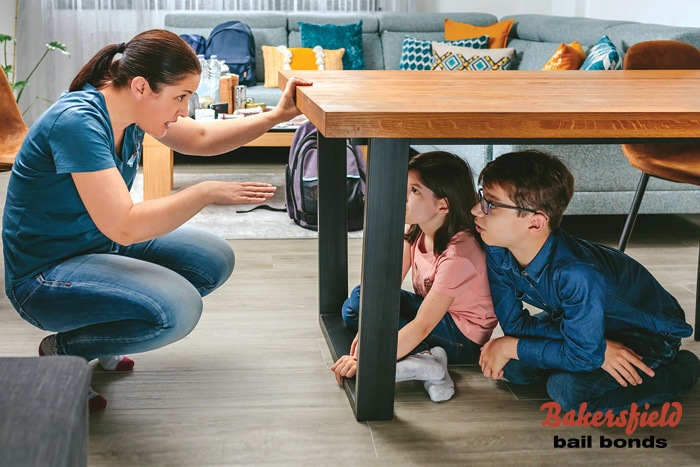
There are many great reasons to live in California. There’s also one huge drawback. In exchange for easy access to beaches and year-round wonderful weather, you always have to be prepared for an earthquake.
The good news is that most of the earthquakes California experiences are really small, little more than slight tremors that give people something to chat about. They seldom do more than cause a few things to fall off shelves. However, every once in a while, there is a massive earthquake.
Since no one really knows when a big earthquake will shake California or how bad the earthquake will be, it’s important that everyone who calls California home is up to date on current earthquake safety tips.
Create a Safety Plan
Everyone who lives in your home should have a plan about how they will handle things if they’re home during a massive earthquake. Not only does this mean knowing the safest point in your house, but also having a system in place that allows you to connect with loved ones to let them know that you’re safe. Keep some survival supplies, including non-perishables, blankets and bottled water in the earthquake designation zones.
When You’re Indoors
If you’re inside when a massive earthquake hits, get somewhere protected. Ideally, this would be a closet, which has a frame that provides additional protection. If you’re not near a closet, get under a table or desk. The idea is to get some protection from falling debris. Make sure you’re well away from bookcases, windows and anything heavy that could shift or fall.
Drop low to the ground, preferably on your knees, and stay still until the shaking stops. You should stay indoors for several minutes after the shaking stops. The only exception to staying in place is if you smell gas or smoke. If you smell gas or smoke, get out as quickly as possible while yelling for help.
When You’re Outside
If you’re outside when an earthquake starts, you want to get low to the ground while also moving away from trees, buildings and power lines. If you’re in a vehicle, stop the car somewhere safe and have a less chance of being hit by a power line tree or sliding into a ditch.
Once the earthquake has passed, you need to first take care of yourself and make sure you’re not injured. Once you’re confident you’re in good shape, your next course of action is checking in with your loved ones and helping anyone who was injured during the earthquake.
